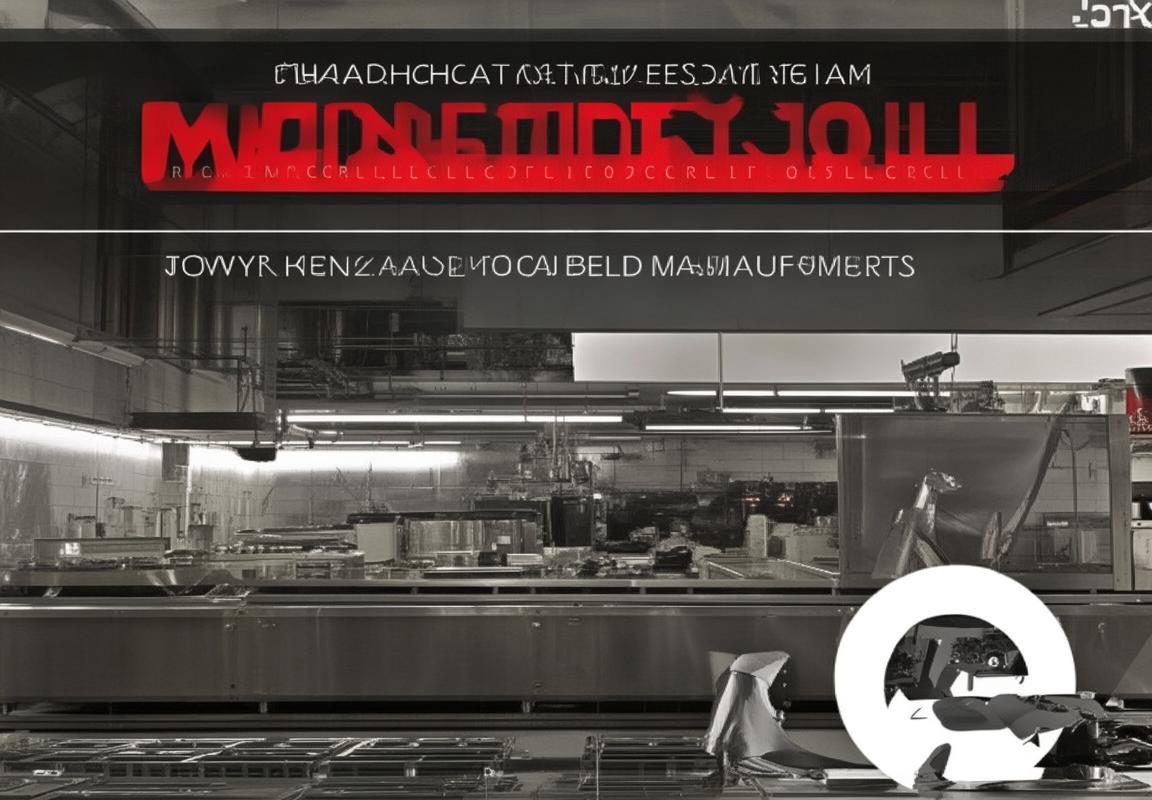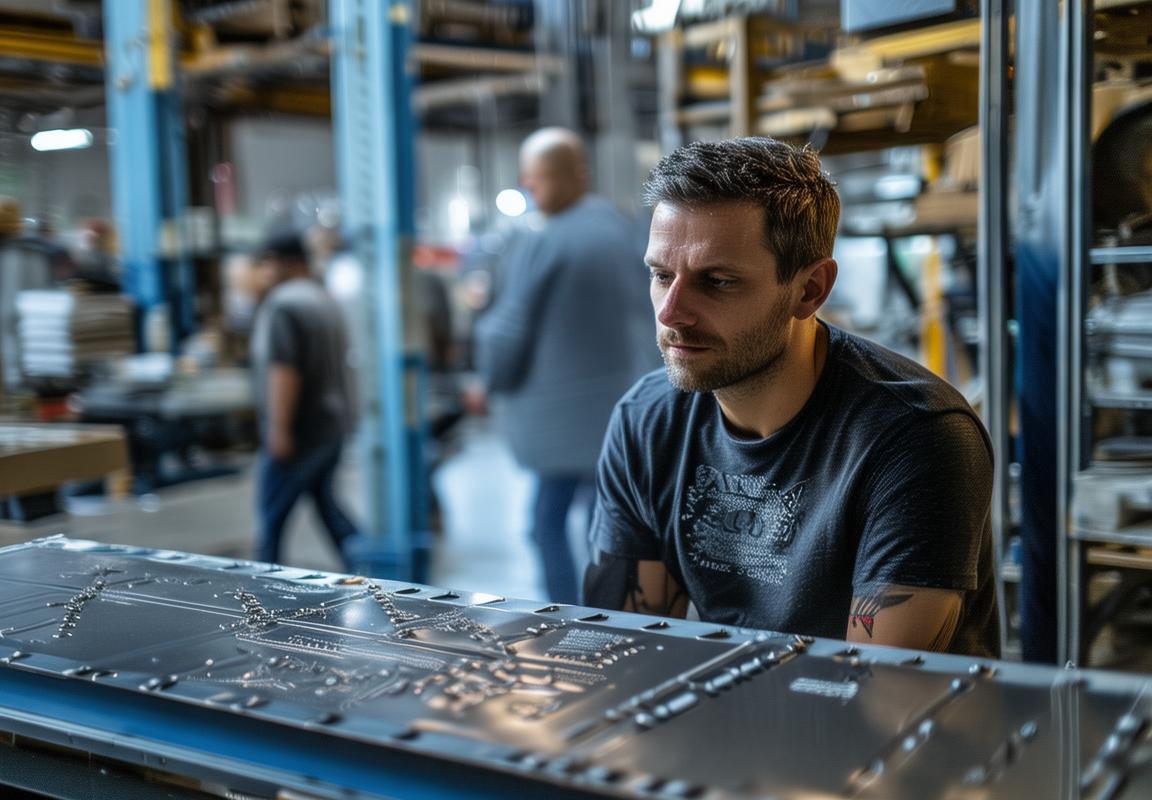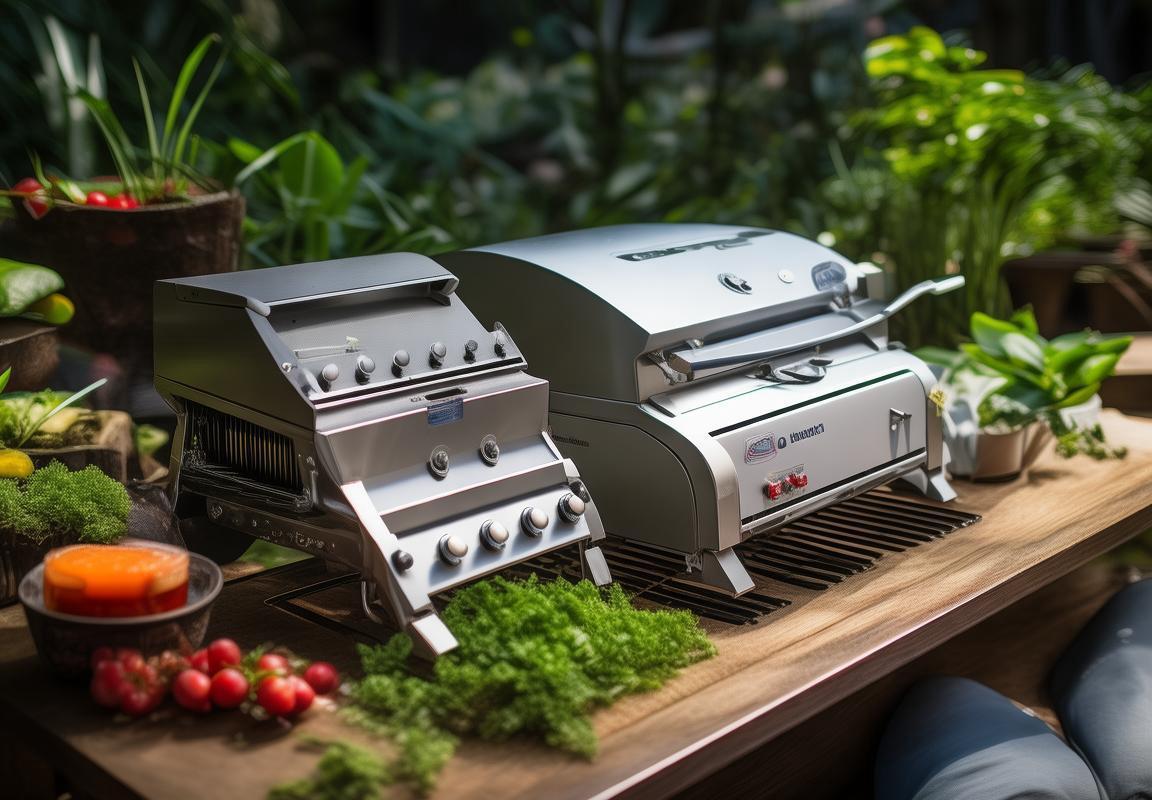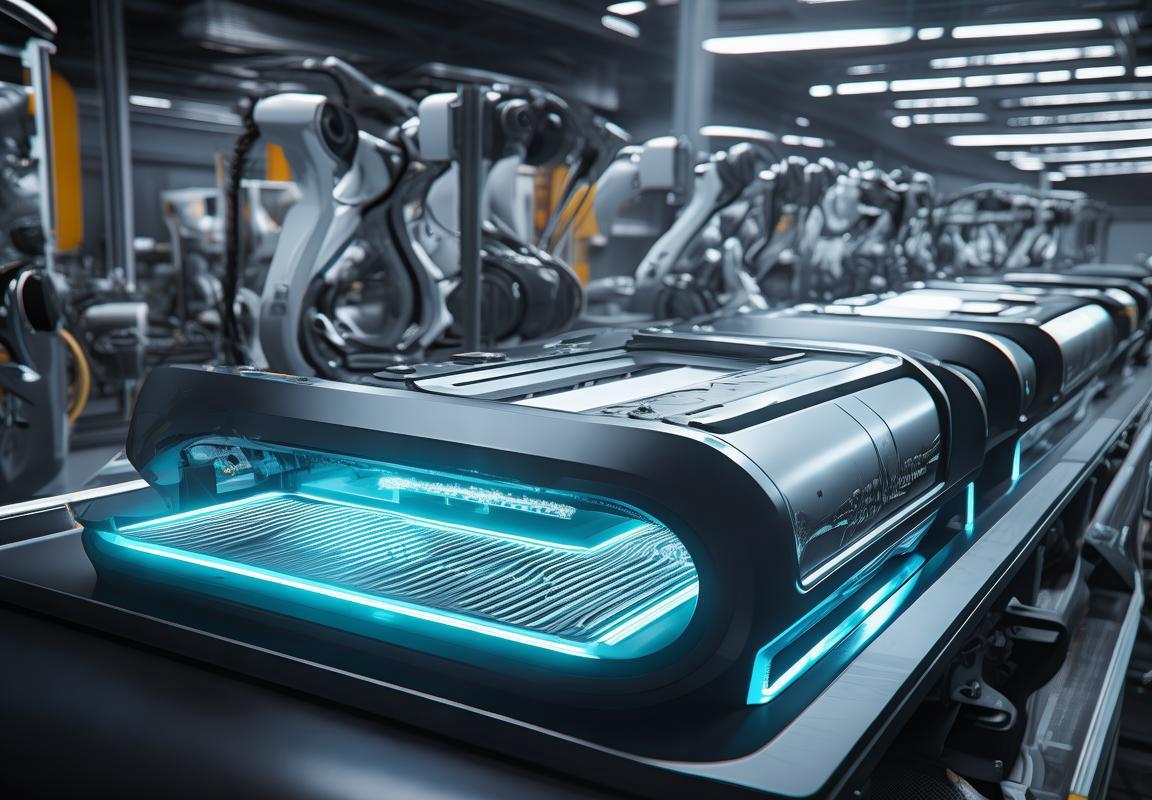In the competitive world of kitchen appliances, the contact grill has emerged as a must-have for both professional chefs and home cooks alike. As demand for these versatile cooking tools grows, the role of OEM (Original Equipment Manufacturer) manufacturers has become increasingly significant. These companies play a pivotal part in the grill industry, not just by producing high-quality contact grills but also by driving innovation and efficiency. In this article, we delve into the intricacies of working with an OEM manufacturer, showcasing success stories, and exploring the future of contact grill OEM manufacturing. By the end, it becomes clear why choosing to partner with an OEM manufacturer is a strategic and smart decision for businesses in the grill market.
Introduction to Contact Grill OEM Manufacturers
In the realm of kitchen appliances, the contact grill has emerged as a must-have for both professional chefs and home cooks alike. These versatile cooking devices offer a unique way to achieve that perfect sear on meats and vegetables, thanks to their flat-top design. But how do these grills come to life? Enter the Contact Grill OEM Manufacturer, a crucial player in the industry. Let’s delve into the world of OEMs and understand their pivotal role in bringing contact grills to the market.
The term “OEM” stands for Original Equipment Manufacturer, and it refers to a company that produces goods or components that are branded and sold by another company. In the context of contact grills, OEM manufacturers are responsible for the design, development, and production of these appliances. They work closely with brands and retailers to create customized products that meet specific requirements and market demands.
One of the primary reasons why OEM manufacturers are essential in the contact grill industry is their ability to offer a wide range of design options. From different grill plate materials to adjustable heat settings and various sizes, OEMs can cater to diverse customer preferences. This flexibility allows for the creation of contact grills that not only look appealing but also perform exceptionally well.
Moreover, OEM manufacturers often have access to cutting-edge technology and manufacturing processes. This enables them to produce high-quality contact grills that are both durable and efficient. By leveraging their expertise, these manufacturers can help brands differentiate their products from competitors and stand out in a crowded marketplace.
Another key advantage of working with an OEM manufacturer is cost-effectiveness. Many brands opt to outsource the production of their contact grills to OEMs to reduce overhead costs and streamline their supply chain. By focusing on their core competencies, such as marketing and sales, these brands can leave the manufacturing process in capable hands, ensuring that their products are produced efficiently and at a competitive price.
When selecting an OEM manufacturer for contact grills, brands need to consider several factors. Firstly, the manufacturer’s experience and track record in the industry are crucial. A reputable OEM should have a proven history of delivering high-quality products and meeting deadlines.
Secondly, it’s important to assess the manufacturer’s capabilities in terms of design and engineering. They should be able to provide innovative solutions and customize the contact grill to meet specific brand requirements. Additionally, the OEM should have a robust quality control process in place to ensure that each grill meets the brand’s standards.
Furthermore, the OEM manufacturer’s production capacity is a critical consideration. Depending on the brand’s sales projections, the manufacturer should be able to handle the production volume without compromising on quality. This includes having the necessary equipment, workforce, and supply chain to support large-scale production.
Communication and collaboration are also key aspects of working with an OEM manufacturer. A good OEM should be responsive to the brand’s needs and open to feedback throughout the development and production process. This ensures that the final product aligns with the brand’s vision and expectations.
In recent years, several OEM manufacturers have showcased their prowess in the contact grill market through successful case studies. For instance, one such manufacturer worked closely with a well-known brand to develop a compact, portable contact grill that could be easily used in various settings, from camping trips to outdoor events. The result was a hit in the market, thanks to its innovative design and exceptional performance.
Looking ahead, the future of contact grill OEM manufacturing is bright. As consumer preferences continue to evolve, OEMs are expected to innovate and adapt to meet these changing demands. This may involve incorporating smart technology into contact grills, making them more user-friendly and efficient. Additionally, sustainability and eco-friendly practices are likely to play a significant role in the future of grill manufacturing, with OEMs exploring alternative materials and energy-efficient production methods.
In conclusion, Contact Grill OEM Manufacturers are indispensable partners in the development and production of these popular kitchen appliances. Their expertise, cost-effectiveness, and ability to customize products make them a crucial element in the contact grill industry. By choosing the right OEM manufacturer, brands can ensure that their products are of the highest quality, meet market demands, and ultimately, delight their customers.

Understanding the Role of OEMs in the Grill Industry
In the bustling grill industry, Original Equipment Manufacturers (OEMs) play a pivotal role, often unseen yet indispensable to the success of brands and consumers alike. OEMs are the silent architects behind the scenes, crafting the core components that power a vast array of contact grills. Here’s a closer look at how these manufacturers shape the grill landscape.
Manufacturers of contact grills, as OEMs, specialize in the production of grill plates, heating elements, and other crucial parts that are then integrated into the finished product by the brand. Their expertise lies in the precision engineering and high-quality materials that ensure these components meet the stringent standards required for reliable and efficient cooking.
OEMs often act as the bridge between cutting-edge technology and consumer demand. They stay on the forefront of innovations, such as new heat distribution systems, temperature control mechanisms, and safety features, which they incorporate into their products. This allows the brands they supply to offer state-of-the-art grills that cater to the evolving preferences of the market.
One of the key strengths of OEMs is their ability to scale production. They can handle large orders without compromising on quality, which is particularly beneficial for brands looking to expand their product lines or meet the high demand of the holiday season. This scalability ensures that the supply chain remains robust and reliable, a crucial factor in the grill industry where timing can be everything.
Customization is another cornerstone of the OEM model. OEM manufacturers can tailor their products to the specific needs of their clients, whether it’s adapting to unique design specifications or creating a product that meets certain performance criteria. This flexibility allows brands to differentiate their products in a crowded market, offering a unique selling proposition that resonates with consumers.
Quality control is a non-negotiable aspect of OEM manufacturing. These companies invest heavily in rigorous testing protocols to ensure that every part they produce meets the highest standards of safety and functionality. This focus on quality not only protects the end-user but also enhances the reputation of the brand that distributes the finished grill.
The OEM model also fosters innovation. By working closely with brands, OEMs can gain insights into emerging trends and customer feedback. This collaboration can lead to the development of new features and functionalities that might not have been considered otherwise. The result is a continuous cycle of improvement that benefits both the manufacturer and the consumer.
Moreover, OEMs often handle the logistics of production, including sourcing raw materials, managing inventory, and overseeing the assembly line. This comprehensive approach to manufacturing allows brands to concentrate on other aspects of their business, such as marketing and customer service, without worrying about the intricacies of production.
In terms of environmental responsibility, OEMs are increasingly taking a proactive stance. They are adopting eco-friendly practices in their manufacturing processes, from reducing energy consumption to minimizing waste. This commitment to sustainability not only aligns with the values of eco-conscious consumers but also helps brands to market their products as environmentally responsible.
The OEM model also supports the global nature of the grill industry. Manufacturers can operate across borders, sourcing materials from around the world and delivering finished products to markets wherever they are needed. This global reach is essential for brands looking to expand their presence in international markets.
Lastly, OEMs provide a level of continuity and stability that is invaluable in the grill industry. As market trends fluctuate and consumer preferences change, having a reliable OEM partner ensures that brands can adapt and innovate without the risk of disruptions in their supply chain.
In summary, OEMs in the contact grill industry are the unsung heroes, providing the foundation upon which brands build their product lines. Their role in design, production, quality control, customization, and innovation is instrumental in shaping the competitive landscape of the grill market. Without the expertise and dedication of these manufacturers, the variety and quality of contact grills available to consumers would be significantly diminished.

Key Benefits of Choosing an OEM Manufacturer for Contact Grills
In the world of contact grills, opting for an OEM (Original Equipment Manufacturer) can be a game-changer for businesses looking to enter or expand in the market. Here are some key benefits that come with choosing an OEM manufacturer for contact grills:
-
Cost-Effective ProductionOne of the primary advantages of working with an OEM manufacturer is the cost-effectiveness it offers. By leveraging the existing infrastructure and expertise of the OEM, businesses can significantly reduce production costs. This includes savings on tooling, labor, and overhead, as the OEM has already invested in the necessary machinery and processes to produce high-quality contact grills at scale.
-
Streamlined Manufacturing ProcessThe manufacturing process is a critical factor in the success of any product. OEM manufacturers specialize in streamlining the production process, ensuring efficiency and consistency. From design and engineering to assembly and quality control, they have honed their methods to deliver a seamless production flow. This efficiency translates into faster turnaround times and a more reliable supply chain for your business.
-
Customization and FlexibilityAn OEM manufacturer can offer a high degree of customization, allowing businesses to tailor their contact grills to meet specific market demands or brand identities. Whether it’s adjusting the size, features, or design, OEMs can accommodate these changes without disrupting their established production lines. This flexibility is crucial for businesses looking to differentiate their products in a competitive market.
-
Quality Control and CertificationQuality is paramount in the grill industry, and OEM manufacturers are committed to maintaining the highest standards. They have rigorous quality control processes in place, ensuring that each contact grill meets or exceeds industry standards. Additionally, many OEMs hold certifications such as ISO, which guarantees that their products are safe, reliable, and adhere to international quality standards.
-
Technical Expertise and InnovationOEM manufacturers bring a wealth of technical expertise to the table. They stay abreast of the latest advancements in grill technology, materials, and design. This means that businesses can benefit from cutting-edge innovations without the need to invest heavily in research and development. From improved heating elements to user-friendly interfaces, OEMs can integrate these innovations into your product line.
-
Scalability and Growth PotentialAs your business grows, so does the need for scalable manufacturing solutions. OEM manufacturers are equipped to handle increased production volumes without compromising on quality. This scalability ensures that your business can expand its product offerings or meet surging demand without the constraints of setting up and managing a new production facility.
-
Focus on Core CompetenciesBy partnering with an OEM manufacturer, businesses can focus on their core competencies, such as marketing, sales, and customer service. This strategic outsourcing allows companies to allocate resources more effectively, enhancing overall performance and competitiveness. It’s a smart way to leverage the strengths of the OEM while the business continues to grow and evolve.
-
Reduced Time to MarketTime is a valuable asset in any industry. An OEM manufacturer can significantly reduce the time it takes to bring a new contact grill to market. Their experience in product development, regulatory compliance, and production means that your product can be ready for launch much sooner than if you were to develop and produce it in-house.
-
Access to Global MarketsMany OEM manufacturers operate on a global scale, giving businesses access to international markets. By working with an OEM, companies can tap into the OEM’s existing network of suppliers, distributors, and customers, which can be invaluable for expanding into new regions or countries.
-
Sustainability and Environmental ResponsibilityIn today’s market, sustainability is a key consideration. OEM manufacturers often prioritize environmentally friendly practices in their production processes, from sourcing materials to waste management. By choosing an OEM, businesses can align their products with sustainable values and appeal to a growing consumer base that values eco-conscious brands.
In summary, the benefits of choosing an OEM manufacturer for contact grills are multifaceted, offering cost savings, efficiency, customization, quality assurance, innovation, scalability, and a host of other advantages that can propel a business forward in the competitive grill industry.

How to Select the Right Contact Grill OEM Manufacturer
Selecting the right Contact Grill OEM Manufacturer is a critical decision that can significantly impact the quality, cost, and success of your product. Here are several factors to consider when making this important choice:
-
Quality Control and StandardsEnsuring that the OEM manufacturer adheres to stringent quality control measures is paramount. Look for certifications such as ISO 9001, which guarantees a commitment to quality management systems. Check their history with past clients to gauge the consistency and reliability of their products.
-
Experience and ExpertiseThe experience level of the OEM manufacturer can be a strong indicator of their capabilities. An established company with years in the grill industry is likely to have a deeper understanding of the market, product design, and manufacturing processes. Their expertise can lead to better product development and innovation.
-
Customization CapabilitiesThe ability to customize your contact grill to meet specific requirements is a crucial benefit. Whether it’s branding, size adjustments, or additional features, a flexible OEM should be able to tailor their products to your exact specifications. Ensure they have a proven track record of successful customizations.
-
Design and Engineering SupportThe OEM manufacturer should provide robust design and engineering support. This includes the ability to iterate on designs, offer advice on materials and construction, and ensure that the final product meets both your and regulatory standards. A strong design team can help bring your vision to life.
-
Capacity and Production EfficiencyConsider the manufacturer’s production capacity and efficiency. A manufacturer that can scale production to meet your demand without compromising quality is ideal. They should have the resources to handle increased orders without delays or sacrifices in product quality.
-
Supply Chain and SourcingThe OEM’s supply chain is a reflection of their overall business health. A well-managed supply chain ensures timely delivery and cost-effectiveness. Evaluate their sourcing practices to ensure that they use quality materials and have reliable suppliers.
-
Cost-effectiveness and Pricing StructureWhile quality is key, so is cost-effectiveness. Compare quotes from different manufacturers to find the best balance between price and value. Look for transparency in their pricing structure, including any hidden costs or long-term commitments.
-
Communication and CollaborationEffective communication is vital throughout the partnership. Ensure that the OEM manufacturer is responsive to your inquiries and open to collaboration. Regular updates and clear communication channels can prevent misunderstandings and ensure a smooth production process.
-
Post-production Support and ServiceA good OEM manufacturer will offer post-production support, including technical assistance, warranty services, and parts replacement. This ongoing support is crucial for maintaining the reputation of your brand and ensuring customer satisfaction.
-
Regulatory ComplianceVerify that the OEM manufacturer is compliant with all relevant industry regulations and standards. This includes food safety regulations, electrical safety, and environmental standards. Non-compliance can lead to costly recalls or legal issues.
-
Customer Reviews and ReferencesLook for reviews and testimonials from other clients. Real-world experiences can give you insight into the manufacturer’s reliability, customer service, and the quality of their products. Don’t hesitate to ask for references and follow up with them.
-
Long-term Partnership PotentialConsider whether the OEM manufacturer is interested in building a long-term relationship with you. A willingness to invest in your success and adapt to your evolving needs can be a sign of a valuable partner.
By carefully considering these factors, you can select an OEM manufacturer that not only meets your immediate production needs but also supports your brand’s growth and success in the long term. Remember, the right manufacturer can be a silent partner in your product’s journey to market, so choose wisely.

The Process of Working with a Contact Grill OEM Manufacturer
Navigating the complexities of the grill industry, selecting the right OEM manufacturer to collaborate with is crucial for the success of your contact grill venture. Understanding the process and what to expect when working with an OEM can streamline your operations and ensure a high-quality end product. Here’s a detailed look at the process involved:
The Initial ContactEngaging with a potential OEM manufacturer often begins with an initial inquiry. This could be through a website contact form, an email, or a phone call. Your request should clearly outline your product specifications, including the type of contact grill you envision, the materials you want to use, and any specific features or design elements you wish to incorporate. A responsive OEM manufacturer will provide a prompt response, ready to discuss your project in detail.
Project AssessmentOnce you’ve made initial contact, the OEM manufacturer will assess your project. This involves evaluating your specifications against their capabilities and experience. They’ll consider factors like the complexity of the design, the volume of production, and any special requirements for materials or assembly. The assessment phase may also include a review of your business plan, to ensure they align with your goals and market strategy.
Design CollaborationIf the OEM is interested in moving forward, the next step is design collaboration. This is where the OEM’s design team works closely with you to refine the initial concept. They’ll provide sketches, prototypes, and may even offer suggestions to enhance the design’s functionality or aesthetics. This stage is critical for ensuring that the final product meets both your expectations and the demands of the market.
Quality Control and PrototypingOnce the design is agreed upon, the OEM will move into the prototyping phase. This involves creating a sample of the contact grill that closely mirrors the final product. The prototype is then rigorously tested for quality control, examining aspects like durability, safety features, and user experience. Multiple iterations may be required to fine-tune the design, ensuring it meets your standards.
Pilot ProductionAfter the prototype passes all quality checks, the OEM will initiate pilot production. This small batch of contact grills is produced to test the full production process, including material sourcing, assembly, and any additional processes like painting or finishing. The pilot run is an opportunity to identify any potential issues that may arise during full-scale production.
Supply Chain ManagementA key aspect of working with an OEM manufacturer is managing the supply chain. This includes sourcing high-quality materials, ensuring timely delivery, and maintaining inventory levels. The OEM should have a robust supply chain management system in place to avoid delays and ensure a consistent supply of parts and components.
Mass ProductionOnce the pilot production is successful and any necessary adjustments have been made, the OEM will move into mass production. This stage involves scaling up the production process to meet your desired volume. The OEM should keep you informed about the progress, providing regular updates on production milestones and any challenges that may arise.
Quality AssuranceThroughout the entire process, quality assurance is paramount. The OEM should conduct regular inspections and tests to ensure that every contact grill meets the agreed-upon specifications. They should also have a system in place for handling any defective products or customer complaints.
Documentation and CertificationProper documentation is essential for compliance and transparency. The OEM should provide detailed records of the manufacturing process, including material certifications, test results, and any relevant safety standards compliance documents. This is particularly important if your product is intended for export or sale in regions with strict regulatory requirements.
After-Sales SupportOnce your contact grills are in the hands of customers, the OEM manufacturer should offer after-sales support. This can include handling warranty claims, providing technical assistance, and potentially offering maintenance or repair services. Maintaining a good relationship with the OEM post-production is crucial for long-term success.
Performance Review and Continuous ImprovementThe final step in the process is to review the performance of the OEM manufacturer. This should include an evaluation of the product’s quality, the efficiency of the production process, and the overall experience of working with the OEM. Feedback from this review can be used to improve future projects and strengthen the relationship with your OEM manufacturer. Continuous improvement ensures that both parties remain aligned with your evolving business goals.

Case Studies: Success Stories with Contact Grill OEM Manufacturers
Navigating the world of contact grill OEM manufacturers can be a game-changer for businesses looking to enter or expand in the grill market. Here are some real-life success stories that showcase the benefits of partnering with such manufacturers:
-
Innovative Design and Customization: One startup, seeking to differentiate itself in a crowded market, turned to a contact grill OEM manufacturer for a custom design. The OEM team worked closely with the startup to develop a unique, sleek grill that catered to the brand’s aesthetic and functional requirements. The end product not only met the startup’s expectations but also became a talking point among consumers, driving sales and brand recognition.
-
Quality Control and Consistency: A well-established brand faced quality control issues with its previous grill supplier. After switching to an OEM manufacturer known for strict quality standards, the brand experienced a significant improvement in product consistency. The OEM’s rigorous testing and quality assurance processes ensured that every grill met the brand’s high standards, leading to customer satisfaction and repeat purchases.
-
Cost-Effective Production: A small business looking to offer competitive pricing on its grills partnered with an OEM manufacturer that offered economies of scale. By leveraging the OEM’s production capabilities, the business was able to produce high-quality contact grills at a lower cost, making them more affordable for a wider customer base. This strategic move helped the business gain market share and establish itself as a value-driven brand.
-
Fast Turnaround and Flexibility: A retailer required a quick turnaround on a special order of contact grills for a promotional event. The OEM manufacturer was able to expedite the production process, ensuring that the retailer received the grills on time. The flexibility of the OEM allowed the retailer to capitalize on the opportunity and make a significant sale during the event.
-
Global Reach and Distribution: An international brand needed a reliable OEM manufacturer to help distribute its contact grills across multiple continents. The OEM manufacturer had a global footprint and the expertise to navigate various regulatory standards. This partnership allowed the brand to expand its market reach, enter new regions, and establish a strong presence in diverse markets.
-
Technological Advancements: A forward-thinking company sought to integrate cutting-edge technology into its contact grills. The OEM manufacturer, with its R&D capabilities, collaborated to develop a grill that featured advanced features such as smart controls and energy-efficient heating elements. This innovation not only set the company apart from competitors but also opened up new opportunities for premium sales.
-
Sustainability and Eco-Friendly Solutions: A company focused on sustainability partnered with an OEM manufacturer that offered eco-friendly options for its contact grills. The OEM provided materials and manufacturing processes that were environmentally responsible, aligning with the company’s green initiative. This eco-conscious approach resonated with consumers, leading to increased sales and positive brand perception.
-
Long-Term Partnerships and Growth: Several brands have found success by establishing long-term partnerships with contact grill OEM manufacturers. These relationships have allowed for continuous improvement, innovation, and scaling up production as the demand for the grills grew. The stability and reliability of the OEM manufacturer have been instrumental in the brands’ ability to maintain a competitive edge and achieve sustainable growth.
These case studies highlight the transformative impact that working with a contact grill OEM manufacturer can have on a business. From design and customization to quality control, cost-effectiveness, and global expansion, the right OEM partner can be a catalyst for success in the grill industry.

The Future of Contact Grill OEM Manufacturing
In the ever-evolving landscape of the grill industry, the role of OEM (Original Equipment Manufacturer) manufacturers has become increasingly pivotal. These companies play a crucial part in the production process, offering a range of benefits that can significantly impact the success of a brand. Let’s delve into the key advantages of partnering with a Contact Grill OEM Manufacturer.
-
Cost-Effective ProductionBy outsourcing the manufacturing process to an OEM, companies can benefit from economies of scale. OEMs often have large production facilities and established supply chains, allowing them to produce items at a lower cost per unit. This cost-effectiveness can be passed on to the end consumer, making the product more competitive in the market.
-
Access to Specialized ExpertiseOEM manufacturers specialize in the production of specific products, such as contact grills. This specialization means they have a deep understanding of the industry’s standards, regulations, and best practices. By leveraging this expertise, brands can ensure that their products meet or exceed customer expectations.
-
Customization and FlexibilityOne of the standout benefits of working with an OEM is the ability to customize products to meet specific requirements. Whether it’s adjusting the design, incorporating new features, or modifying the materials used, OEMs can often accommodate these changes without disrupting their production lines. This flexibility allows brands to tailor their offerings to the needs of their target market.
-
Reduced Time to MarketDeveloping a new product from scratch can be time-consuming and costly. When working with an OEM, brands can significantly reduce their time to market. OEMs are equipped to handle the entire production process, from design and prototyping to quality control and shipping, ensuring a streamlined and efficient process.
-
Quality Control and AssuranceOEM manufacturers are committed to maintaining high-quality standards. They have rigorous quality control measures in place to ensure that every product that leaves their facility meets the brand’s specifications. This assurance can help build trust with consumers and enhance the brand’s reputation.
-
ScalabilityAs a brand grows, so does the demand for its products. An OEM manufacturer can scale production up or down to meet these changing demands. This scalability is particularly beneficial for brands that are looking to expand into new markets or increase their market share.
-
Focus on Core CompetenciesBy outsourcing the manufacturing process, a brand can focus on its core competencies, such as marketing, sales, and customer service. This strategic decision allows the company to allocate resources more effectively and potentially increase its competitive advantage.
-
Environmental ResponsibilityMany OEM manufacturers are committed to sustainable practices. They use eco-friendly materials, minimize waste, and reduce energy consumption during production. By working with such manufacturers, brands can align themselves with environmentally conscious values and appeal to a growing market segment that prioritizes sustainability.
In the realm of contact grill OEM manufacturing, several success stories stand out as testament to the benefits of such partnerships. Here are a few examples:
- Brand A, a small startup, partnered with an OEM to develop a unique, compact contact grill. The OEM’s expertise in design and production allowed Brand A to bring their product to market quickly and efficiently, capturing the attention of consumers and gaining a strong market presence.
- Brand B, a well-established company, sought to expand its product line. By working with an OEM, they were able to introduce a new line of contact grills with advanced features, maintaining their competitive edge while also meeting the demands of a changing market.
- Brand C, a global brand, collaborated with an OEM to produce a high-end contact grill for a new market segment. The OEM’s ability to customize the product and ensure quality control helped Brand C establish a new category and grow their international presence.
As we look to the future of contact grill OEM manufacturing, several trends and advancements are shaping the industry:
- Technological Integration: The integration of smart technology into contact grills is becoming more prevalent. OEM manufacturers are at the forefront of this trend, offering brands the opportunity to incorporate features like Bluetooth connectivity, temperature control, and recipe customization.
- Material Innovations: There is a growing focus on using sustainable and durable materials in grill manufacturing. OEMs are exploring new materials that offer better performance, longevity, and environmental benefits.
- Market Expansion: As the global demand for grills continues to rise, OEM manufacturers are expanding their capabilities to cater to a wider range of markets and consumer preferences.
- Customization and Personalization: Consumers are increasingly seeking personalized products, and OEMs are responding by offering more customizable options, allowing brands to create unique and tailored offerings.
- Sustainability and Ethics: The emphasis on sustainability and ethical manufacturing practices is likely to grow, with OEMs playing a key role in developing greener and more socially responsible production methods.
In conclusion, the future of contact grill OEM manufacturing is poised to be dynamic and innovative. By leveraging the expertise and resources of OEM manufacturers, brands can stay ahead of the curve, meet consumer demands, and drive growth in the competitive grill market.

Conclusion: Why Partnering with an OEM Manufacturer is a Smart Choice
In today’s competitive market, partnering with an OEM (Original Equipment Manufacturer) for contact grill production can be a game-changer. It’s not just about manufacturing; it’s about leveraging expertise, reducing risks, and tapping into a world of possibilities. Here’s why choosing an OEM manufacturer is a smart move:
-
Cost-Effective ProductionWhen you work with an OEM manufacturer, you gain access to their economies of scale. They’ve already invested in the necessary machinery, labor, and supply chains, allowing them to produce at a lower cost per unit. This means you can offer your customers competitive pricing without compromising on quality.
-
Streamlined Production and DeliveryOEM manufacturers are adept at managing the production process. From design to delivery, they ensure that every step is optimized for efficiency. This streamlined approach means quicker turnaround times and more reliable delivery schedules, which is crucial for meeting market demands.
-
Quality Control and CertificationAn OEM manufacturer is committed to maintaining high-quality standards. They have rigorous quality control measures in place, ensuring that every contact grill meets or exceeds industry standards. Additionally, many OEMs are certified by recognized bodies, which adds an extra layer of trust for your customers.
-
Customization and InnovationOne of the key advantages of working with an OEM is the ability to customize your product. Whether it’s altering the design, incorporating new features, or even creating a completely new product, an OEM can turn your vision into reality. This flexibility allows you to differentiate your brand in a crowded market.
-
Reduced Risk and LiabilityWhen you outsource production to an OEM, you also transfer a significant amount of risk. OEMs are responsible for compliance with safety regulations, ensuring that the products they manufacture are safe for consumers. This means you can focus on your business growth without worrying about potential legal issues.
-
Focus on Core CompetenciesBy partnering with an OEM, you can concentrate on what you do best—selling contact grills. You don’t have to invest in the complexities of manufacturing, which allows your team to excel in areas such as marketing, sales, and customer service.
-
Global Reach and Market AccessOEM manufacturers often have a global presence, which can be a huge asset. They have the infrastructure and knowledge to navigate international markets, helping you expand your reach without the need for a physical presence in every region.
-
Continuous Improvement and InnovationOEMs are constantly looking for ways to improve their processes and products. This means you’ll benefit from the latest advancements in contact grill technology and design. They’re also adept at adapting to market trends, ensuring that your product stays relevant.
-
Financial Stability and ReliabilityReputable OEM manufacturers are financially stable, which guarantees that your production orders will be fulfilled. They have the resources to handle fluctuations in demand and can scale up production quickly if needed.
-
Long-Term Partnerships and SupportA good OEM manufacturer is interested in building a long-term relationship with you. They understand that a successful partnership is based on mutual growth and support. This means you can count on them for ongoing technical assistance, quality control, and even strategic advice.
In conclusion, partnering with an OEM manufacturer for contact grill production offers numerous benefits. From cost savings and quality assurance to customization and market access, it’s a strategic choice that can significantly enhance your brand’s competitive edge. By leveraging the expertise and resources of an OEM, you’re not just choosing a manufacturer; you’re choosing a partner that can help you navigate the challenges and opportunities of the market with confidence.